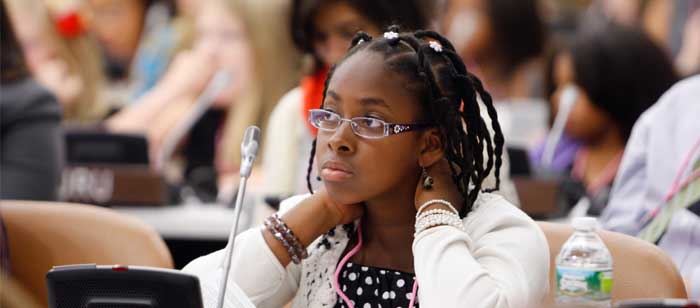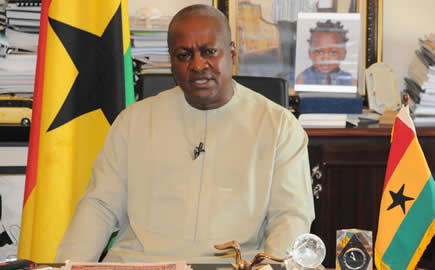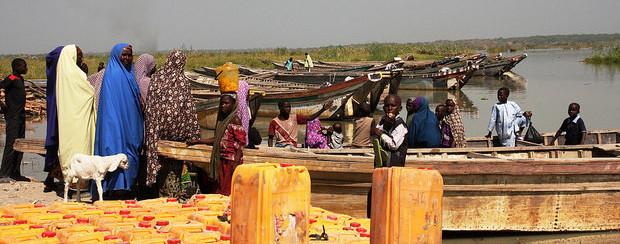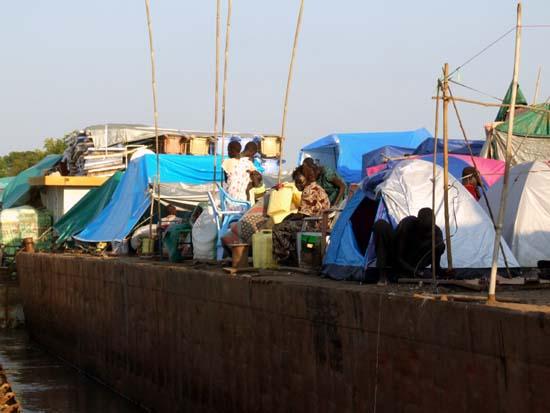Women as Leaders? Power, Participation and Progress in the 21st Century? – By Dele Meiji Fatunla

Today is International Women’s Day and the beginning of a month-long emphasis on the lives of women and the challenges and opportunities they face in the 21st century. At the RAS, we began the month with an event held at Parliament discussing women’s political participation and leadership in Africa.
The continued dominance of political life in Africa by men is not good for men, it’s not good for women and it’s not good for the continent. Thankfully, this is a situation that is beginning to change. African women have made remarkable progress in emancipation and empowerment, not least in the last few years where we have seen a few women take on the mantle of leadership in the political arena at the highest level. Women occupy the presidency in Malawi and Liberia. Mrs Nkosazana Dlamini-Zuma is the Chairperson of the African Union Commission. In many countries, women are now the leaders of key ministries. Ngozi Okonjo-Iweala is the minister of Finance for Nigeria; Linah Moholo is the central governor of the Bank of Botswana. Yet, many challenges remain, not least, the use of rape as a weapon of war, which has been a particularly damaging development in many recent conflicts on the continent.
Despite the challenges, where African governments have made gender parity a priority, there have been significant results – Senegal, South Africa, Botswana, and Mozambique all rank highly for their level of women’s representation parliament. The only country in the world with more than 50% of women in its legislature is Rwanda. The debate on using quotas to achieve gender parity in politics remains a lively one, in Africa, the UK and elsewhere, yet there is no gainsaying the results. Mozambique, one of the countries where quota systems have been implemented is ranked 5th in the world for female representation in Parliament. Carlos dos Santos, the Mozambican High Commissioner to the UK, speaking at our event on Women as Leaders in Africa, links Mozambique’s gender policies to the country’s struggle for liberation, and the equal role played by men and women in it. He said: “We consider women’s equality fundamental to development in Africa and elsewhere in the world…Our conviction dates back to the time of the liberation movement against colonialism, where women fought side by side with men to liberate the country… It was clear then and now that the development of our country requires the full participation of women, who constitute 52% of the population.” Lofty ambitions – but attaining them in most African countries remains a challenge, even with some of the most progressive legislation anywhere in the world in many of the continent’s constitutions.
According to the Mo Ibrahim foundation’s founding executive director, Hadeel Ibrahim; it is the attitudes of men that have to change. Speaking at our event, she said: “We have consistently talked about women to women, yet the issue is men. Women do not rape themselves; women do not discriminate against themselves, except in a few instances. The cultural shift that has to happen is between men of different generations. If we want to deal with female representation, if we want to deal with gender parity, my argument is that we go to that 10-20 year age group, engage with them, embed principles of gender equality there… get to those young men before they become warped by all sorts of cultural factors.”
But women also absorb the prevailing cultural norms – changing their attitudes and building their confidence, as Olubunmi Ajayi, CEO of the African Centre for Local Government says, is crucial to achievement female empowerment. As a study published last year by the Mvule Trust makes clear, education remains one of the most effective ways of achieving this, in Africa and elsewhere. Unfortunately too many women all over the continent are prevented from accessing education, and when they do, entering the public arena remains fraught with difficulties. Nevertheless, women are increasingly making their presence felt in the political and economic arenas. In Liberia, the Women’s Peace Network played a pivotal role in ending the conflict. In Mozambique, says Ambassador Carlos dos Santos, women’s co-operatives have begun to flex their economic muscle, replacing some agricultural imports from Brazil. And in South Africa, Ramphele Mamphele, a veteran activist, and first female vice-chancellor of the University of Cape Town, has launched a political party aiming to challenge the dominance of the ANC.
The demographic changes happening on the continent, as Hadeel Ibrahim points out, will certainly provide an opportunity for more women to take up positions of leadership, positions in which they will increasingly be asked to serve as role models for girls in their own countries and globally.
We have invited some of these dynamic and influential women to talk about their priorities and views on African women in the 21st century and we’ll be sharing their contributions throughout the month. Their views are as diverse as women across the continent, but there is one thing where they are all agreed – the empowerment of women in all spheres of life remains one of the African continent’s most urgent priorities.
Dele Meiji Fatunla is a writer and the Website Editor for the Royal African Society.








[…] Women as Leaders? Power, Participation and Progress in the 21st Century? – By Dele Meiji Fatunla […]
While there is a lot of justifiable emphasis on the need for attitudinal change among the men folk and the society in general regarding the roles of women and our political and economic empowerment, I think one issue that remains relatively un-addressed or has eluded the radar of debates is that women in many African societies are not well-organised. Women groups and organisations are relatively uncoordinated, fragmented and do not receive as much wider support from other women within the society. This relative inability to coalesce, mobilise and speak with one voice does a lot of its own damage. One key factor at play here in my opinion, is because feminism within the African context is not yet clearly defined. We are making some progress, but I think we need to clearly define what this means,and mainstream it beyond academic journals and debates so that ordinary African women can connect with this feminism. Read more about this in a piece I wrote last week titled (Re)Defining African Feminism:
http://zainabusman.wordpress.com/2013/03/08/redefining-african-feminism/
[…] at an event titled Women as Leaders in Africa: Participation … Power and Progress? organised by the Royal African Society last month, Hadeel Ibrahim, co-founder of the Mo Ibrahim […]